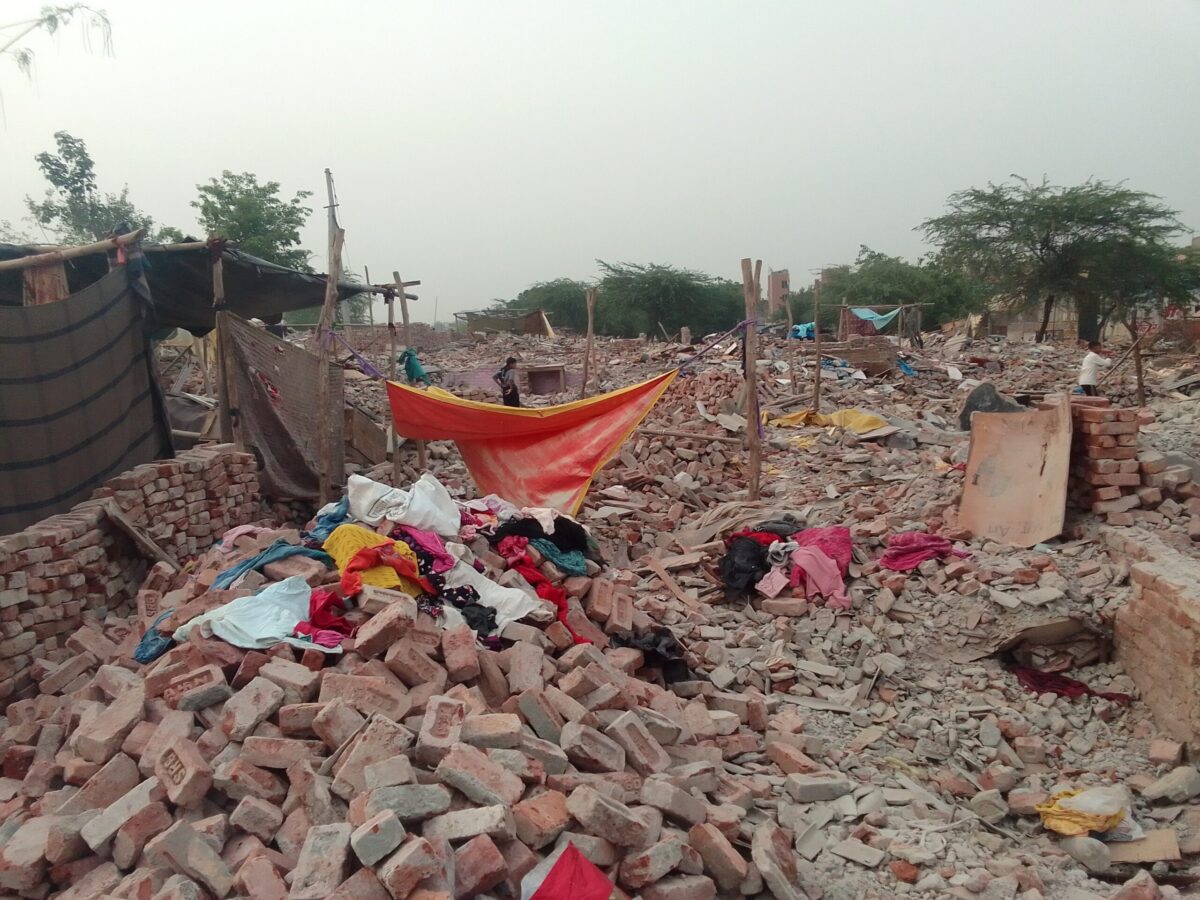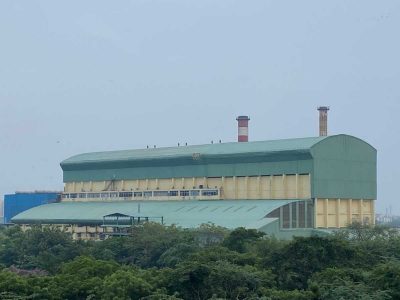Over half a month after the Archaeological Survey of India (ASI) razed 1,000 houses in Tughlakabad, the 2.5 lakh residents who were rendered homeless, are still trying to pick up the pieces amid soaring temperature in the Capital.
The affected residents, who are still trying to search their belongings from the rubble and are living in a temporary polythene shelter, have now gone on hunger strike to demand at least a compensation following ASI’s action on April 30.
“I work as a sweeper in kothis (mansions). We bought this [house] on instalments and had paid the final one but they demolished it. We had sold our ancestors’ property to buy this house. We are ready to leave this land but the government should compensate for our belongings,” said Rubi Kumari, who has been living here for a decade.
Although a notice was served to nearly 1,200 families of the Tughlaqabad Fort area of Delhi, which asked them to vacate their homes, residents allege that authorities demolished over 1500 homes.
The area’s economic profile indicates that it primarily comprises a working-class community where residents work as domestic helps, security guards, street vendors and factory workers. Most women workers are employed in the nearby kothis as servants.
They complain that all their savings have been spent and they can’t shift to rented accommodation because it is expensive and landlords are uncooperative. They have lost hope from all sides and are feeling helpless.
The fear of women’s safety is a factor in the area.
“We are surviving in the forest (here) with young daughters. The Prime Minister said, beti bachaao, beti padhaao (save the daughter, educate the daughter). How will we save or educate our daughters now,” she said in pain.
Despite the demolition that has left no trace of homes, the helpless residents have refused to leave. Many families here have set up temporary tents in the same place where their houses had once stood. Others have shifted to rented accommodation while some have sent their young girls to their relatives.
Women in the area expressed anger on matters, especially safety.
“The landlord has not allowed us to use water, so how can we bathe or even wash. They also did not allow my pet inside the house. My daughter, who is in class 9th, is also badly affected. She is unable to study properly. How will we be safe here now when anti-social elements roam here at night,” said another.
The Supreme Court has refused to halt the demolition of encroachments in Tughlakabad, but agreed to hear the issue of rehabilitation.
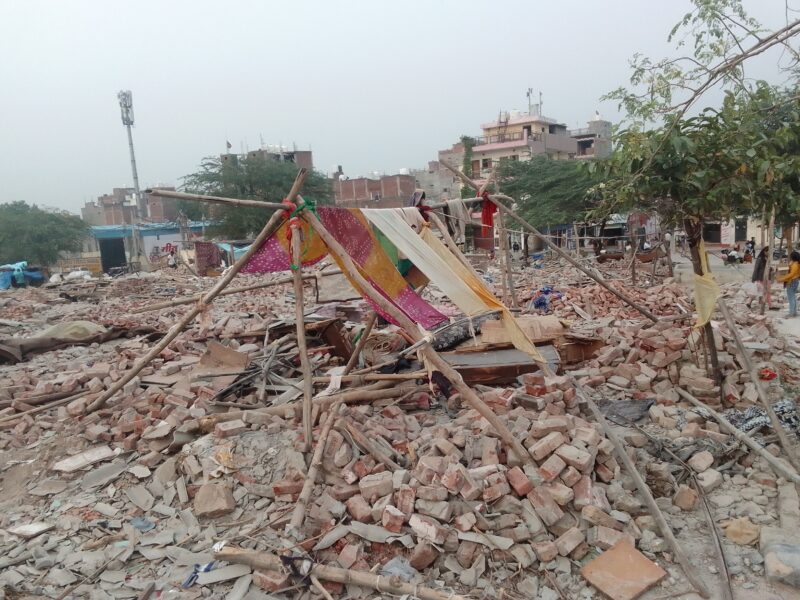
STREWN: Huts and belongings of residents destroyed
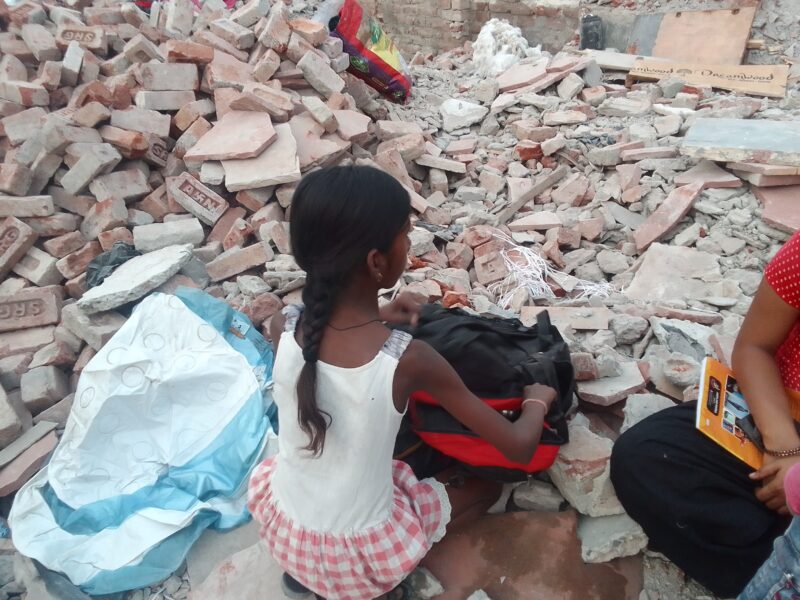
PACKED: A girl busy sealing a bag full of books
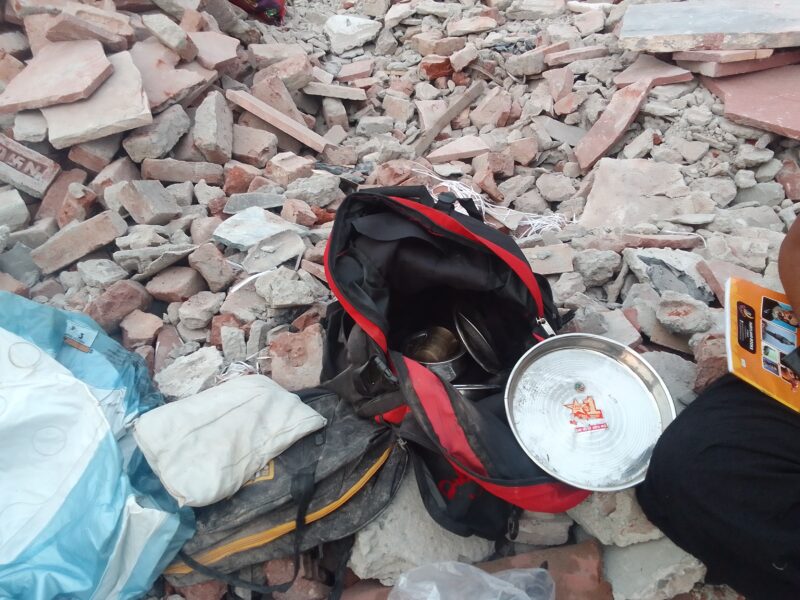
SAFEKEEPING: Schoolbag lying in the open and instead of books hold utensils
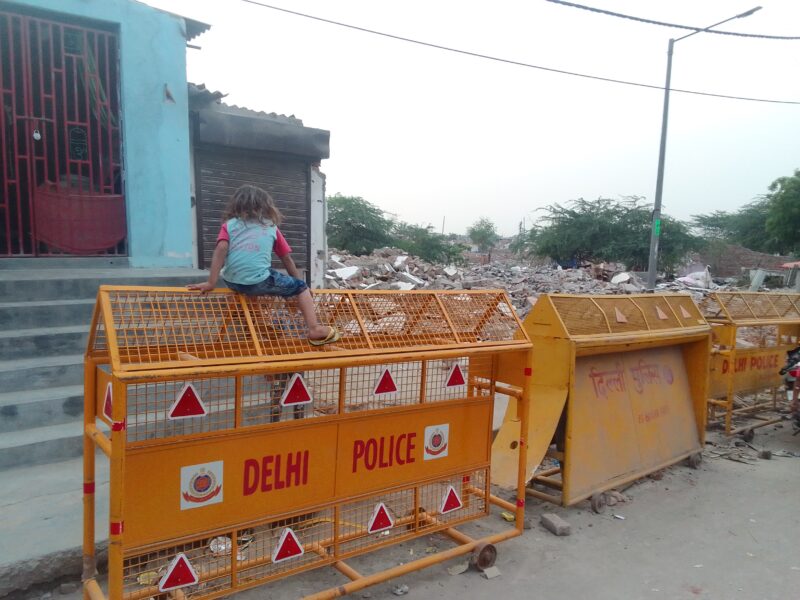
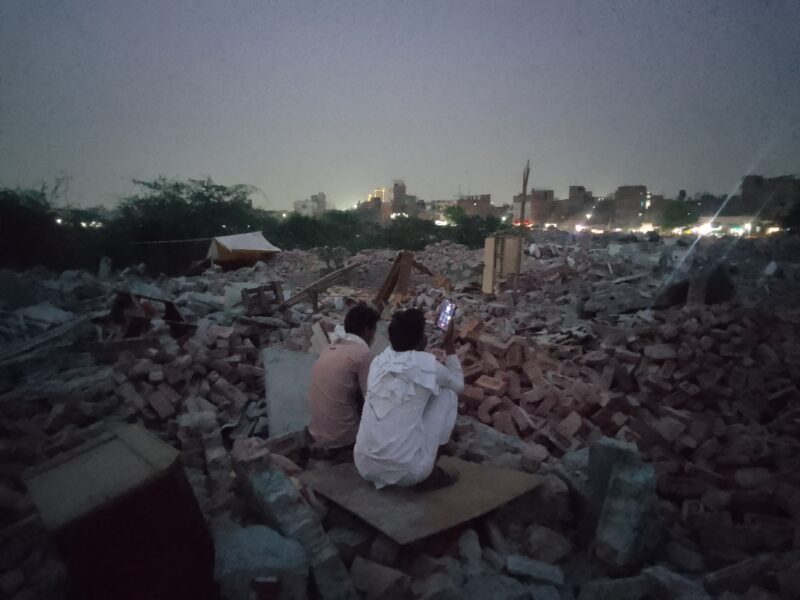
FACING: Two men rendered homeless stare at the distance which is lit up by car headlights
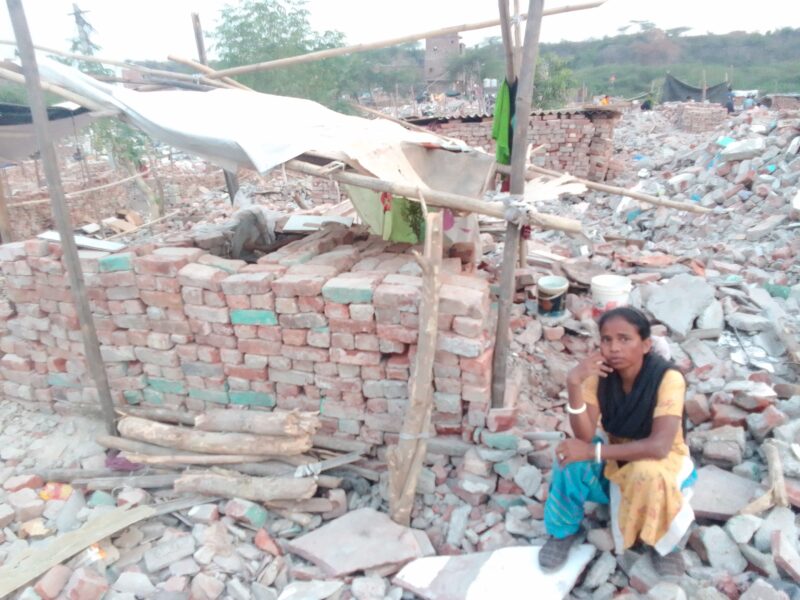
SHAKEN: A woman sits by what used to be her home
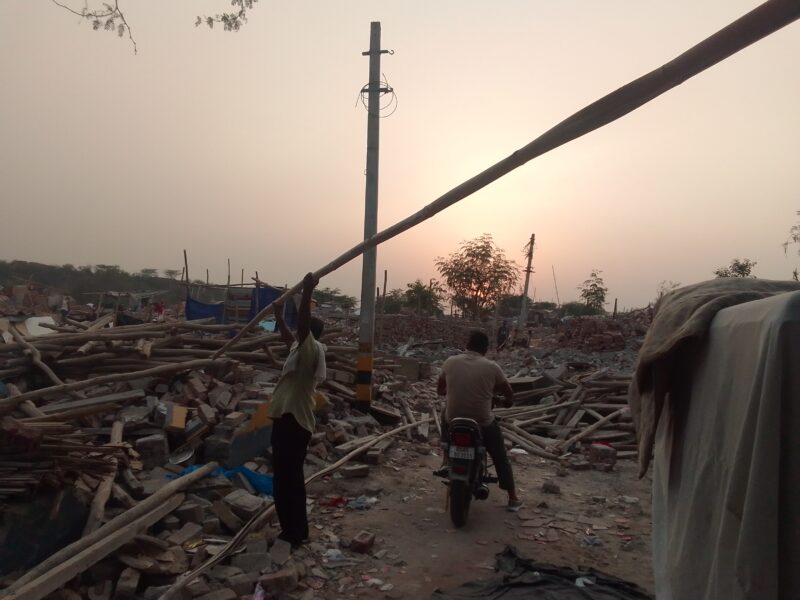
COLLECTION: Staff collecting necessary items to build a temporary house from the rubble

